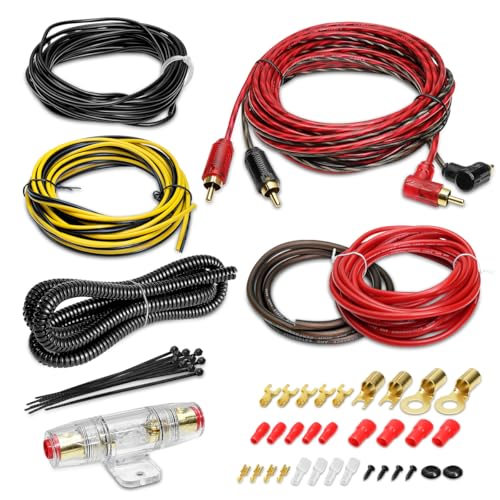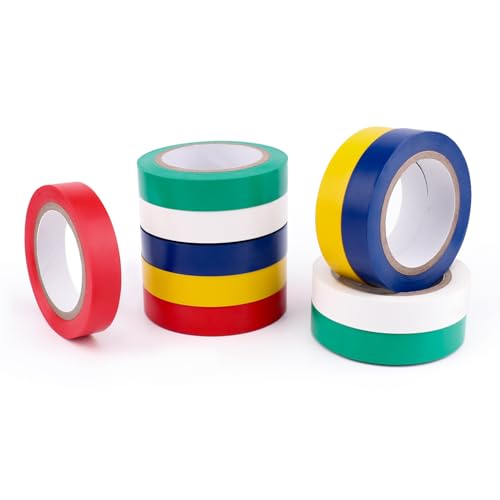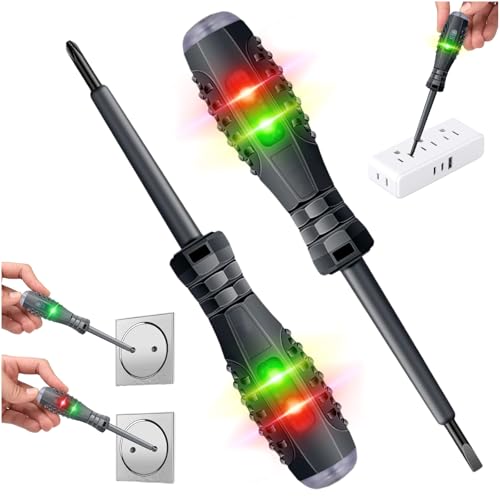I was not asking if you knew the difference between the two , but that it would make a difference to the size of cable you would need,The SWA is buried.. other services are inside the conduit.
You are using an out of date browser. It may not display this or other websites correctly.
You should upgrade or use an alternative browser.
You should upgrade or use an alternative browser.
Help with specs!
- Thread starter Shocker1
- Start date

Help Support Talk Electrician Forum:
This site may earn a commission from merchant affiliate
links, including eBay, Amazon, and others.
Do you get the same flicker issue as with florescents?You need to exercise caution when using LEDs and rotating equipment.
yes, Poorly manufactured LED bulbs with faulty driver components can lead to flickering issues. Voltage fluctuations in your electrical system can cause LED lights to flicker. Low-quality or incompatible dimmer switches can cause LED lights to flicker, Certain types of switches or controls, such as occupancy sensors or timers, may not be designed to work effectively with LED lights, leading to flickeringDo you get the same flicker issue as with fluorescent's?
- Joined
- Oct 22, 2010
- Messages
- 14,647
- Reaction score
- 1,205
My multi tool blade "stopped" when under some GU10 leds today !Do you get the same flicker issue as with florescents?
Just skimmed this but who decided on the SWA cable size? Because the way it’s written, as I understand it, the spark was only engaged to do connections
nicebutdim
Active member
Just skimmed this but who decided on the SWA cable size? Because the way it’s written, as I understand it, the spark was only engaged to do connections
TLC's online cable calculator, but if you read to the second page it transpires the spark had recommended 4mm.

£2.50
£2.99
AM Clean Sound – Multi-Purpose Cleaning Wipes for Electrical Equipment and Screens (Pack of x20)
Amazon.co.uk

£18.58
Rail for PV Solar Panel Installation Includes End Clamp and Middle Clamp (Set 1(For 35mm))
KA KE LI MAO YI

£18.57
Rail for PV Solar Panel Installation Includes End Clamp and Middle Clamp (Set 1(For 30mm))
KA KE LI MAO YI

£499.00
Davlex Commercial Electric Convection Oven Double Fan YXD1AE Bake Roast Browning
Davlex Catering Equipment

£249.99
Davlex four 4 pot baine marie large tank 32 litre soup food doner sauce warmer commercial electric
Davlex Catering Equipment

£33.89
Rail for PV Solar Panel Installation Includes End Clamp and Middle Clamp (Set 3(For 35mm))
KA KE LI MAO YI

£25.84
Rail for PV Solar Panel Installation Includes End Clamp and Middle Clamp (Set 2(For 30mm))
KA KE LI MAO YI
TLC's online cable calculator, but if you read to the second page it transpires the spark had recommended 4mm.
4mm
Sounds a bit light to me. What’s the maximum design load ?
nicebutdim
Active member
No design as such, but OP expected a maximum load of 4.2kW.
- Joined
- Mar 28, 2008
- Messages
- 14,647
- Reaction score
- 1,342
Hi folks,
Just finishing up a garage conversion into a wood workshop for myself. I’ve trenched in a new 6mm SWA (60 metres in hard clay and rock!), and I’ve wired up all my sockets and lighting circuits on the workshop end,
I’ve two 16A radial circuits for the sockets, one side is just chop saw, vacuum and stuff like chargers etc. The other circuit is where the good stuff happens, all the bigger machines.
rather than the house. Does this sound correct? And do those specs sound correct for the purpose?
Snipped a few bits out of your post for clarity...
But 60m length of 6.0mm,, with 16A protective devices? (poor design in my book!)
i.e. from the BS7671 regs tables 6.0mm milivolts per amp per metre is 7.3
(7.3mv/A/m x 16A x 60m) / 1000 = 7.008A
Which exceeds the 3% max permissible voltdrop for a circuit supplying lights.. (6.9v)
Plus.. the above calculation does not even account for the length of cables plus the additional volt-drop for the internal wiring...!!
So to answer your question.. No this doesn't sound correct..!
Personally I doubt any competent electrician would be willing to sign the declarations on an electrical installation certificate stating that the design, construction & testing etc.. of this addition to an installation complies with BS7671. ?? (unless they are a cowboy just after the money and ready to run off into the sunset)
Once anyone starts talking of 50m+ sub-main to an outbuilding I would be thinking at least 10mm CSA to meet initial proposed loads..
Plus all the extras that always happen but are forgotten..
e.g. plugging in a few heaters when it gets a bit colder.. and running extension leads from the outbuilding when doing a few jobs outside.. increasing lengths and volt-drop even more!
These are all pretty basic calculations and design considerations, often missed by less competent electricians, (such as the 5-week wonder short courses crew), Builders who think they know how to do electrics, DIY'ers who've googled how to do an easy electrical project and watched a few Face-Tube, You-Book videos, The mate down the pub who knows a bloke who works as an electrician for the council, Landscape gardeners & garden office installers who know that 2.5mm is for sockets, 1.0mm is for lights and 6.0mm is for cookers & garden sheds and 10.0mm is for showers!!
If I could have earned a pound for every half-truth, inaccurate, or wrong. internet video I have seen about how easy DIY electrical work is.. My holiday beer-money bucket would be overflowing now!!
You either need to get back onto your design consultant and ask for a refund..
Or, bite the bullet and re-do it properly in accordance with BS7671 at your own cost..
Or, Just forget the wiring regs, connect it all up yourself.. take the gamble that you or none of your loved ones ever get injured due to an electrical hazard resulting from your poor design..? (This is the bit you are expecting someone else to take legal responsibility for by providing you with a signed electrical certificate and a Part-P building regs notification)
If you ignore good practice of BS7671 make sure your disconnect your DIY supply and deny it was ever live and working if you move and sell your property!
Last edited:
- Joined
- Oct 22, 2010
- Messages
- 14,647
- Reaction score
- 1,205
I would have gone 10mm, it would also help with I^2r losses, but what do I know. My mate needed a bench saw wiring in the barn where I keep some gear. I told him it needed 6mm armoured efore it was concreted. I was informed he would sort it Anyway, although it is cable and it is black, 20 pair duct grade phone cable is no substitute even if there is a drum of it on site
Sharpend
"It Just Is"
That’s why your multi tool stopped it was obviously not dialling out. Nothing to do with lightsI would have gone 10mm, it would also help with I^2r losses, but what do I know. My mate needed a bench saw wiring in the barn where I keep some gear. I told him it needed 6mm armoured efore it was concreted. I was informed he would sort it Anyway, although it is cable and it is black, 20 pair duct grade phone cable is no substitute even if there is a drum of it on site
- Joined
- Oct 22, 2010
- Messages
- 14,647
- Reaction score
- 1,205
I thought as much, what with it being wireless/cordless an'allThat’s why your multi tool stopped it was obviously not dialling out. Nothing to do with lights
Similar threads
- Replies
- 13
- Views
- 591
- Locked
- Replies
- 5
- Views
- 675
- Replies
- 11
- Views
- 804
- Replies
- 9
- Views
- 851
























































